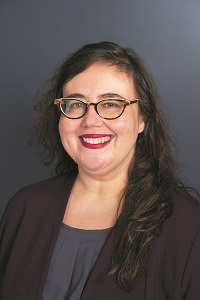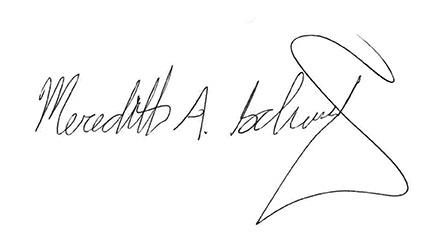Dear President Biden | Editorial
Congratulations on your inauguration. I know you face urgent challenges and must take decisive action at scale. I write to urge you to keep libraries in mind as you design structural remedies to ameliorate the immediate crises and prevent the next.
An open letter to the new administration
 Congratulations on your inauguration. I know you face urgent challenges and must take decisive action at scale. I write to urge you to keep libraries in mind as you design structural remedies to ameliorate the immediate crises and prevent the next.
Congratulations on your inauguration. I know you face urgent challenges and must take decisive action at scale. I write to urge you to keep libraries in mind as you design structural remedies to ameliorate the immediate crises and prevent the next.
Libraries, like so many others, need your help. I know we can trust you to safeguard the Institute of Museum and Library Services, which funds innovation and drives state investment. I also ask your support for including libraries in relief legislation, and for prioritizing vaccines for library workers who deal with the public, to help them and their workforce come through this moment strong. But libraries can also help you tackle other needs on your agenda.
As trusted, community-based institutions that reach all demographics, libraries are well-placed to disseminate reliable information on the rollout of coronavirus vaccines, as they did with the Affordable Care Act and the census.
And that’s only the start. Librarians can help address the misinformation and disinformation that strain our civil dialogue, slowing uptake of the vaccine and contributing to mistrust of elections and elected officials—and even violence. The field doesn’t have the solution. But it does have a deep commitment to working the problem, community convening power to test solutions, and the data-driven ethos to learn what works and build on it.
During the pandemic, libraries provide access to food, diapers, health care, and other basic needs. And long before the novel coronavirus, leading public libraries hosted social workers, public health nurses, and peer navigators to get patrons the help they need. While in the long run I hope you strengthen the safety net so that libraries are no longer forced to pick up slack for missing or inadequate social services, they will remain a critical, stigma-free touchpoint for connecting users to those resources.
Among the entrenched inequities underscored by the pandemic is lack of broadband access. In-library access to computers is no longer enough when work, health care, and schooling must be conducted online. Broadband should become, like plumbing and electricity, a utility for every home. However, we know that reaching the most rural and poorest houses commercially doesn’t make financial sense. Public and tribal libraries are already doing ad hoc, local work to fill that gap. If you empower them to take the lead with a Federal Universal Broadband plan, perhaps by extending the FCC’s E-rate program, they could do much more.
Another crucial issue is educational inequity. We can’t fully address this issue without grappling with ongoing, de facto housing segregation. But we can put a school library and teacher librarian in every school, which is proven to improve grade level reading and graduation rates.
Libraries cannot end the school-to-prison pipeline or for-profit prisons, but a well-stocked, professionally staffed library in every jail and prison, in partnership with educational programs, could go a long way toward helping reentering Americans find employment at a living wage. Incarceration correlates with low literacy, yet the libraries that serve prisoners are uneven at best, nonexistent at worst. Many offer the bare minimum of legal reference, and sometimes even that is on an iPad that prisoners must compete to use. Ebooks, instead of increasing access, too often become an excuse to ban physical books. Since they cannot be donated or bought used, the result is profit to the prison and loss of knowledge for the would-be reader. Innovative public libraries help incarcerated parents connect to their children through reading, but those programs need help at scale to become standard.
In academia the problem is money, pure and simple. We can address journal costs with Open Access, textbooks with Open Educational Resources, and student debt with loan forgiveness. But for adjunctification, which turned the majority of the higher ed teaching workforce into insecure gig workers at poverty wages, we need your administration to reverse declining government investment in higher education.
We need you to reassert that public goods like parks, colleges, schools, and libraries are worthy of investment; that they benefit not only direct users but everyone, because they make the social fabric stronger. I know that’s your goal. It’s libraries’ goal, too. Let’s work together.

RELATED
ALREADY A SUBSCRIBER? LOG IN
We are currently offering this content for free. Sign up now to activate your personal profile, where you can save articles for future viewing









Add Comment :-
Comment Policy:
Comment should not be empty !!!
Kaye Johnson
I am an Australian librarian and we don't have the enormous challenges you face yet. An issue that I have been thinking about during the covid crisis is how libraries can play a role in stopping misinformation. In our library service we have a commitment to not censoring any information - now matter how crackpot it is unless it is illegal. So what do you do if the anti vaxxers want emotive and incorrect information in libraries in the interests of balance? Where do you draw the line?
Posted : Feb 17, 2021 12:46
Kristan Leroy
Well said Meredith, I hope the social net makes a strong comeback in the US so that libraries can focus on their core business of community engagement around reading and writing.
Posted : Feb 03, 2021 01:15